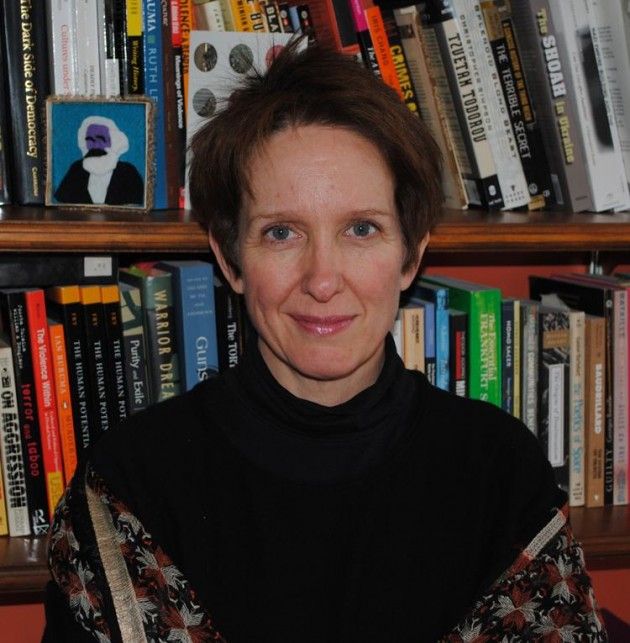Office Hours: Nancy Ries
Nancy Ries was recently awarded the Cultural Horizons Prize for her article “Potato Ontology: Survival in Post-Socialist Russia.” Awarded annually for the best article published in the Journal for Cultural Anthropology, the Cultural Horizons prize is given by the Society for Cultural Anthropology and judged by graduate students from top anthropology programs across North America.
Ries’ involvement in studying Russia from an anthropological perspective goes back several decades to the Perestroika-era policy changes that Mikhail Gorbachev enacted near the end of the Soviet Union.
“I’ve been doing ethnographic field work in Russia since the 80s,” Ries said. “My dissertation field work took place from 1989- 1990. I wanted to study perceptions of the Cold War from the Russian side. But within two months of being there, the Berlin Wall came down. Nobody in Russia was interested in talking about the Cold War and nuclear weapons. Although there was a good sense of things opening up in positive and exciting ways, there was also a sense of foreboding … I stayed and listened while people talked about the political world shifting in dramatic ways around them. That was the basis of my book, Russian Talk: Culture and Conversation during Perestroika.”
Returning to Russia in the mid-1990s, Ries began taking stock of the attitudes emerging toward post-socialist life. In particular, Ries found that newly-formed and reorganized power structures – such as the Mafia and military – were involved in a drastic shift of resource control, and had become very prevalent in the daily life of everyday Russians.
“I spent three summers and a year in Russia in the 90s,” Ries said. “I wrote and thought about people interpreting the transformations. I was interested in particular tropes, key symbols, metaphors and narratives that emerge in a particular moment in time where everyone seems to be talking about the same kinds of things. I found that the key concept was the Mafia. Everyone had stories to tell about the Mafia-ization of their world. I took Mafia to be a critical concept that people used to describe these changes.”
During those years of fieldwork, Ries became interested in understanding the concept of survival and how the Russian people portrayed it.
“Millions of people were dealing with significant poverty,” Ries said. “I wanted to know not just how did people survive, but also how did they talk about surviving? When I would ask people about this, they’d said they survive on Kartoshka “potato”. The idea of the potato opened up the most amazing stories and many questions about history and historical experience.
Ultimately, Ries found that the story of the potato was intimately connected to the story of survival for many Russians, and provided an important way of understanding the social revolution occurring in the past 25 years in Russia. “Potato Ontology” documents both the impoverishment of the Russian people and their survival.
“‘Potato’ is the sense that no matter what happens in this world, we can survive,” Ries said. “‘Potato’ is about the politics and emotionality of struggling to survive.”
The jury that awarded Ries the Cultural Horizons prize praised her creative use of potato as a trope for understanding post-Soviet Russia, and the level of detail she uses in chronicling the potato as it relates to survival.
“Ries embarks upon an ambitious project with unusual clarity and creativity, and succeeds not only in revealing the irreducible significance of the potato in Russian survival narratives, but in destabilizing the classical distinction between materialities and their representations,” wrote the jurists from the Society for Cultural Anthropology.
Ries is currently working on a book related to her work in “Potato” and the field work she conducted on the place of violence in Russian politics and society.
“Now that ‘Potato’ is done, I’m working on a book called Power and Potato,” Ries said. “Right now I’m working on chapters about political violence in the past 20 years, specifically about political assassination and the way that the Mafia-ization of society in the 90s has blunted and repressed the development of civil society.”




